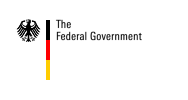While Chancellor Merkel reasserted Germany’s commitment, speaking at the CDU party conference in Hannover, the work on a new international climate protection agreement began in Bali.
Climate experts will be consulting until 14 December on the Indonesian island on the steps to be taken to put in place a binding climate protection agreement as of 2012. A so-called Bali roadmap is to lay out the salient points to be negotiated and a time schedule for negotiations.
A responsibility that only the international community can shoulder
One thing is, however, already clear. Negotiations for the new agreement must be wound up by 2009, to ensure that there is no gap following the expiry of the first commitment period of the Kyoto Protocol.
"Time is of the essence, because the international climate council tells us we must halve CO2 emissions in the long term – by the middle of this century,” Merkel declared in her video podcast last weekend. This is such an enormous task that the international community can only solve it together, she went on.
In Bali, Germany is represented by the Federal Minister for the Environment Sigmar Gabriel and the Federal Minister for Economic Cooperation and Development, Heidemarie Wieczorek-Zeul, both of whom will be taking part in the negotiations from 12 to 14 December.
Energy and security
In the run-up to the conference the Federal Minister for the Environment was quietly confident. The chances of success, he said, had improved markedly this year. Gabriel sees good prospects for the negotiation process, although the negotiations themselves could well be tough.
Gabriel underlined once again that the industrial nations must cut their CO2 emissions more radically than has hitherto been the case. This was his message at the G8 conference on "The Role of Foreign Policy in Guaranteeing a Secure Energy Supply and Protecting the Global Climate” in Berlin. Developing countries, he declared, must link climate protection to poverty reduction.
Federal Foreign Minister Frank-Walter Steinmeier, speaking at the same event, stressed the fact that the issue of secure energy supplies includes looking at the security implications of climate change. For this reason international cooperation on energy supplies must be stepped up, for instance, via the International Energy Agency. Early warning systems and mediation mechanisms could be helpful in this context, he suggested.
Germany retains its trailblazer role in the field of climate protection
Germany will continue to be a good example in the field of climate protection in future. Next Wednesday, the German government will be adopting a package of energy- and climate-policy measures. Their aim is ambitious – to cut CO2 emissions by 40 percent by 2020.
The German government is putting its money on renewable energies in particular to help it achieve this goal. The percentage of total electricity generated in this way is to be raised to between 25 and 30 percent by 2020, by which time renewables are also to meet 14 percent of heating requirements in Germany.
The government is also encouraging new technologies to enhance energy efficiency and encourage climate protection. It has once again increased funding for climate-related research by up to 1.5 billion euros for the period 2008 – 2011.
Every citizen can help Germany to achieve its goals. Emissions of greenhouse gases can be reduced if less energy is used. The restoration programme for older buildings has been extended until 2011, and regulations are being gradually tightened for new buildings, to ensure that Germany does not use more energy than necessary.
